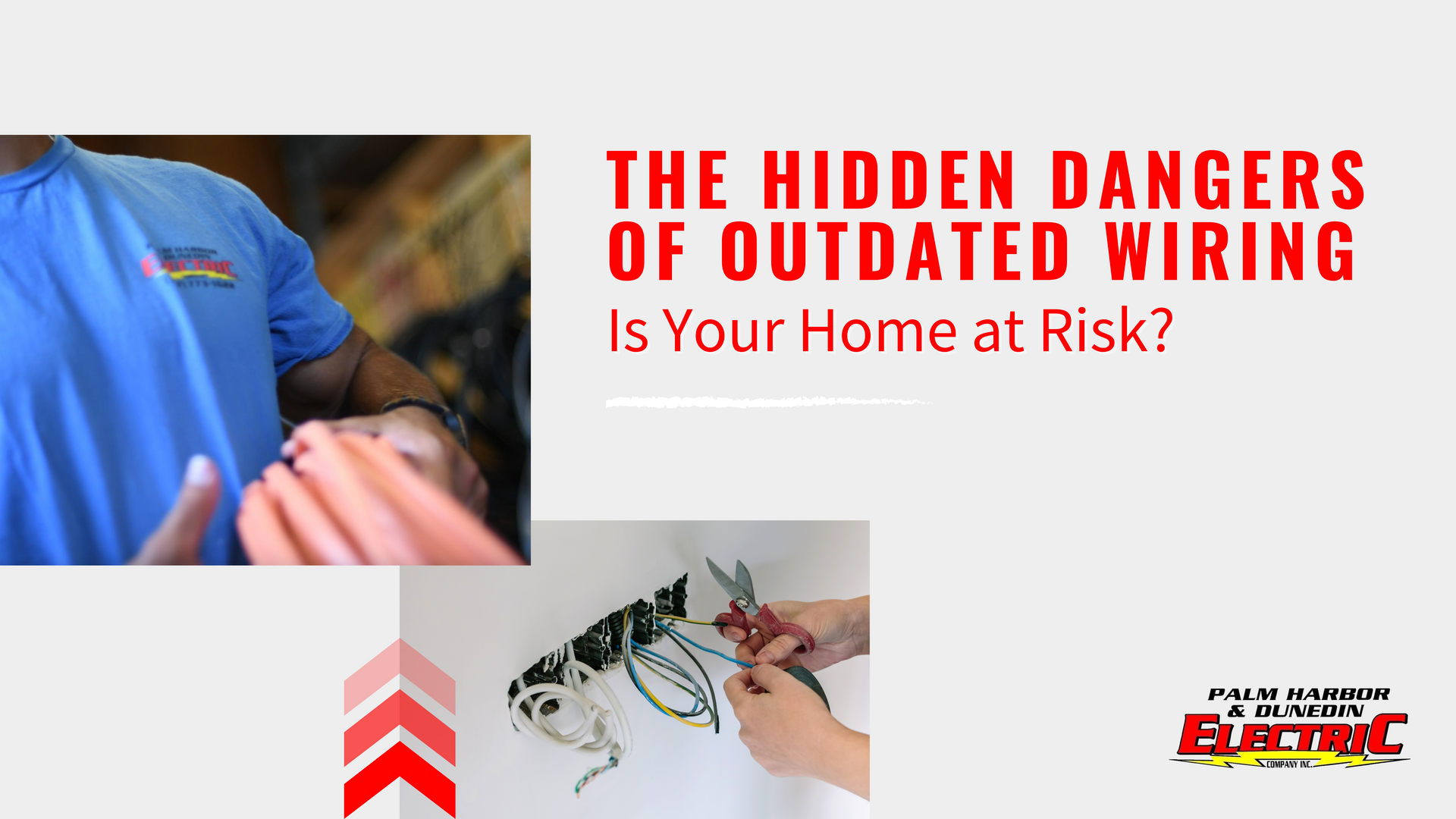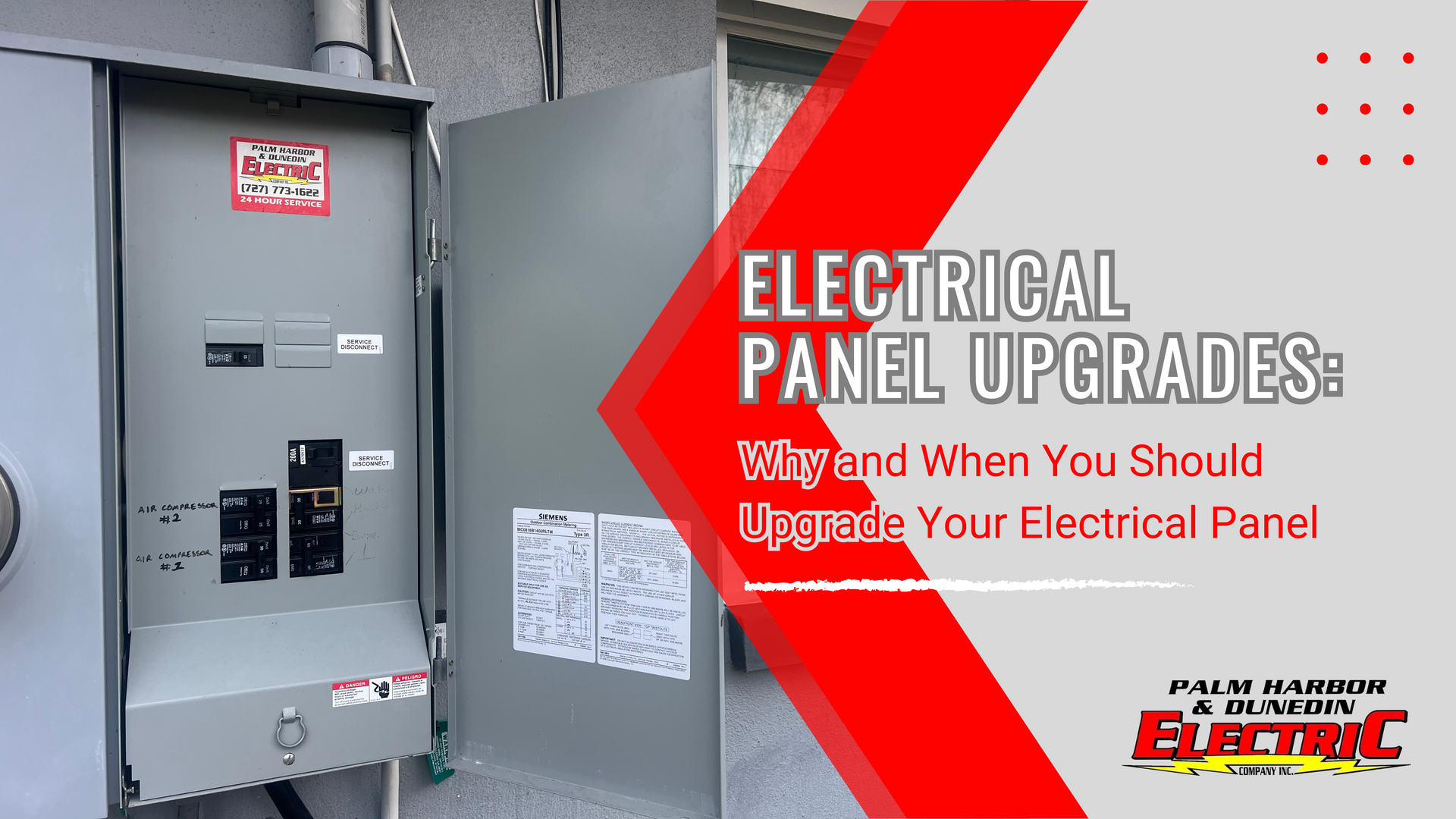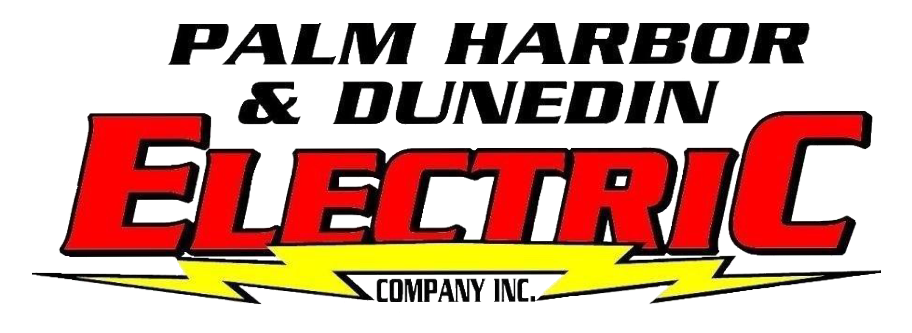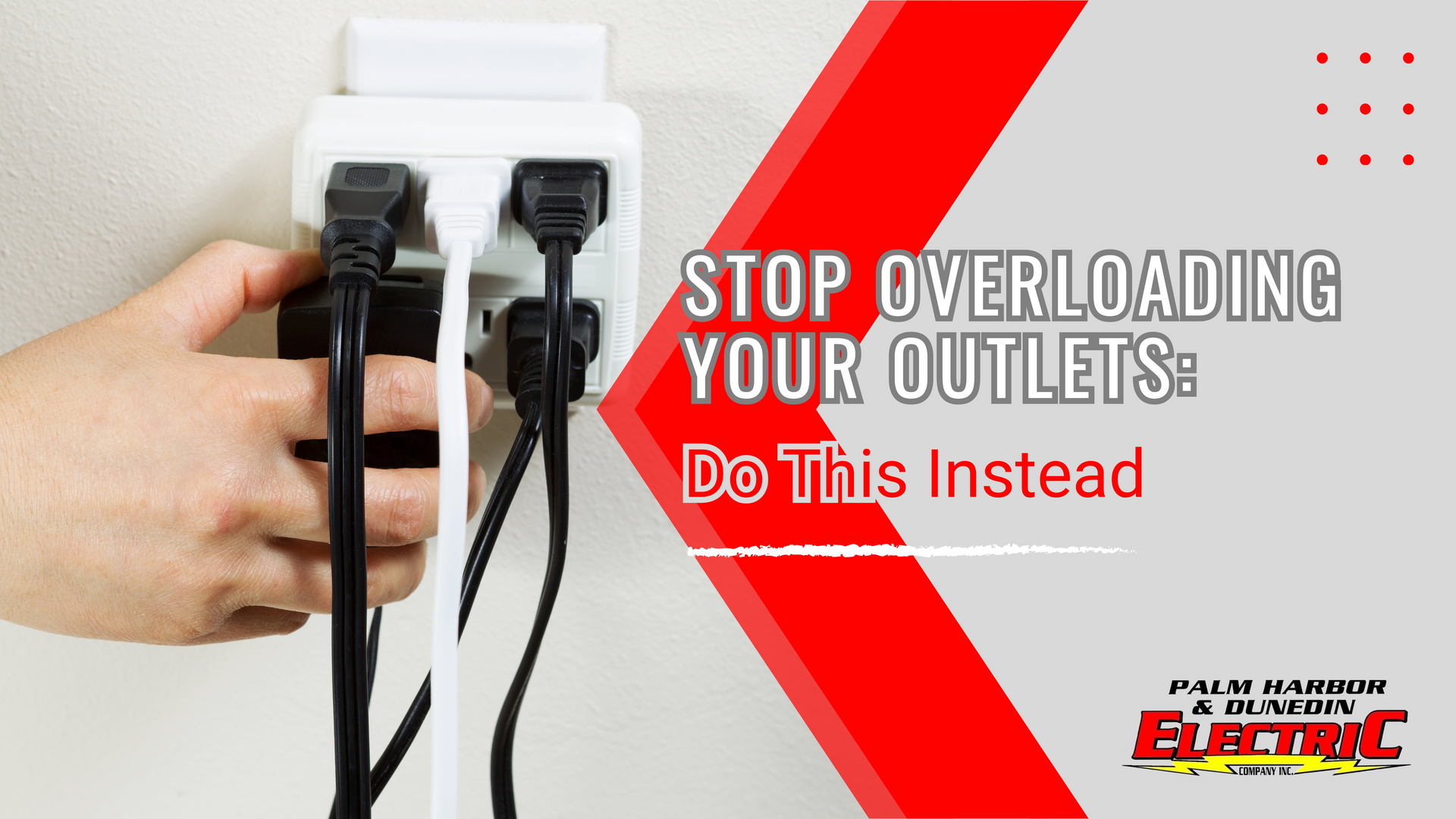Understanding Your Circuit Breaker Panel: A Homeowner's Guide
Understanding Your Circuit Breaker Panel: A Homeowner's Guide
Welcome to the Dunedin Electric blog! Navigating your home's electrical system can seem daunting, but understanding your circuit breaker panel is easier than you might think. In this guide, we'll walk you through how to read and manage your circuit breaker panel, ensuring your home's electrical system remains safe and functional.
What is a Circuit Breaker Panel?
A circuit breaker panel, also known as a breaker box, fuse box, or electrical panel, is the central hub for your home's electrical distribution. It houses circuit breakers that control the flow of electricity to different parts of your home, protecting your electrical system from overloads and short circuits.
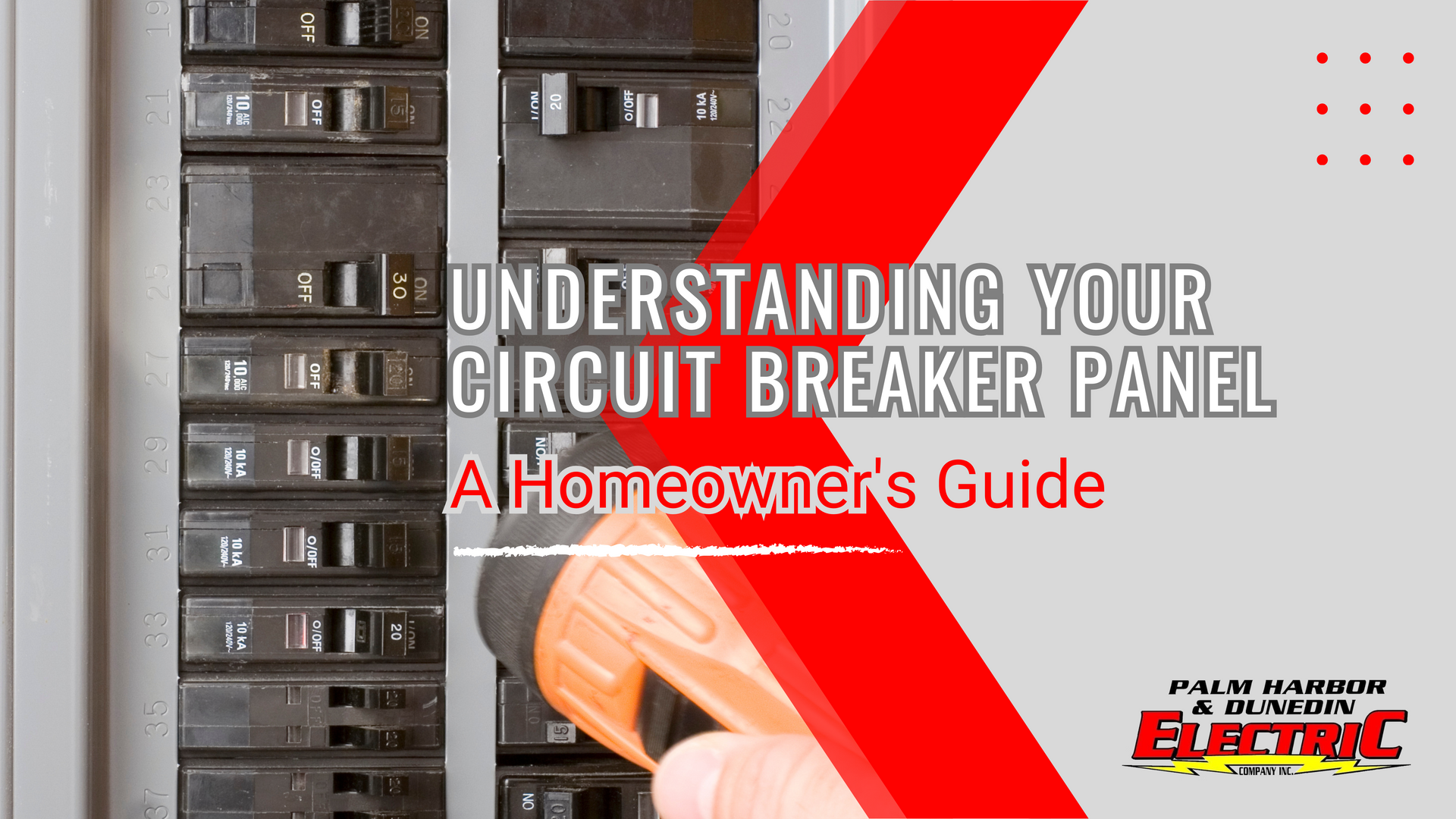
Locating Your Circuit Breaker Panel
The first step in managing your circuit breaker panel is knowing where to find it. Common locations include:
- Basements
- Garages
- Utility rooms
- Hallways or closets (in older homes)
Understanding the Basics
When you open your circuit breaker panel, you’ll see several switches (circuit breakers) arranged in rows. Each switch corresponds to a specific circuit in your home.
Reading the Panel: Step-by-Step
- Main Breaker: At the top of the panel, you'll find the main breaker, which controls the power supply to the entire panel. It's usually rated between 100 to 200 amps.
- Individual Breakers: Below the main breaker, individual breakers control power to specific areas or appliances. Each breaker has an on (up) and off (down) position.
- Labels: Breakers should be labeled to indicate which circuit they control, such as "Kitchen," "Living Room," "HVAC," etc. Labels might be directly on the panel door or on the breaker itself.
How to Use the Circuit Breaker Panel
Resetting a Tripped Breaker
A breaker trips (moves to the middle position) when it detects an electrical overload or short circuit. Here’s how to reset it:
- Locate the Tripped Breaker: Look for a breaker that is neither fully on nor off.
- Turn Off: Push the breaker fully to the "off" position.
- Turn On: Push the breaker back to the "on" position. This should restore power to the circuit.
Turning Off a Breaker
To safely work on an electrical circuit or during an emergency, you might need to turn off a specific breaker:
- Locate the Breaker: Find the labeled breaker for the area or appliance you need to turn off.
- Switch Off: Move the breaker to the "off" position. Confirm that power is off by checking lights or appliances on that circuit.
Safety Tips
- Regular Inspection: Periodically inspect your panel for signs of wear or damage.
- Professional Help: If you're unsure about handling electrical issues, always contact a licensed electrician.
- Clear Labels: Ensure all breakers are clearly labeled for easy identification.
Labeling Your Circuit Breaker Panel
If your panel isn’t labeled or the labels are unclear, take the time to label each breaker. Here’s how:
- Turn On All Lights/Appliances: Turn on lights and appliances in your home to identify which breaker controls which circuit.
- Turn Off Each Breaker: One by one, turn off each breaker and note which lights or appliances go off.
- Label Accordingly: Use a permanent marker or printed labels to clearly mark each breaker’s function.
The Importance of Knowing About your Panel
Understanding your circuit breaker panel is a crucial part of maintaining your home's electrical system. By knowing how to read, reset, and manage your panel, you can ensure your home stays safe and your electrical system runs smoothly.
For more tips and professional electrical services, don’t hesitate to reach out to Dunedin Electric. We're here to empower you with the knowledge and support you need to manage your home's electrical needs confidently!
Stay safe and powered up!
